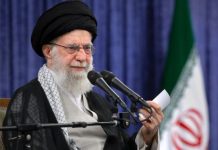Fazzal Abbas
In the intricate dance of global politics and economics, the economic standing of every nation emerges as a cornerstone. The prevailing global economic conditions wield a profound impact on the growth, prosperity, and standard of living of a nation’s citizens. This symbiotic relationship between national economies and the global stage not only dictates financial well-being but also influences the socio-political footprint a country leaves on the international scene.
Pakistan, with its multifaceted economy, traverses a distinctive path by embracing the Islamic economic system, avoiding strict adherence to either capitalism or communism. Despite gaining political independence in 1947, the specter of the Bretton Woods system, constructed by the Western world, continues to cast a shadow over Pakistan’s economic landscape. The amalgamation of diverse economic ideologies has proven insufficient to shield Pakistan from the pressing financial challenges of the contemporary world.
Historian William Dalrymple, in his seminal work “The Anarchy: The East India Company, Corporate Violence, and the Pillage of an Empire,” unfolds a compelling narrative. Dalrymple posits that the East India Company ruthlessly exploited the natural resources of the Indian subcontinent upon landing, catalyzing the expansion of the United Kingdom. There was a time when this kingdom ruled as an enormous empire, its influence spanning the nineteenth and twentieth centuries, leaving an indelible mark on history.
Post-World War II, Great Britain’s imperial influence began to wane. This geopolitical shift prompted Britain to grant political autonomy to its colonies, leading to the emergence of Pakistan on the world map. Despite the veneer of political freedom, Pakistan remains economically and psychologically ensnared by the Bretton Woods system. The International Financial Institutions (IFIs) now brandish a new economic policy, akin to a sword hovering over Pakistan every morning. Failure to adhere to their prescribed plan of action threatens to halt financial assistance.
In his book “International Law,” Malcolm Sha underscores the paradox within the UN Charter. While the Charter mandates member states to respect sovereignty, territorial integrity, and political independence, global financial organizations impose limitations on Pakistan’s economic policy. The apparent lack of control over tariffs, taxes, and customs charges raises questions about the decision-making process, revealing a disconcerting belief that economic policies are set by individuals with little influence over the policy formulation process.
The stark reality of economic imperialism persists despite political liberation from colonialism, as highlighted by a tweet from Pakistan’s former finance minister Ishaq Dar on July 13, 2023. Expressing gratitude for an International Monetary Fund (IMF) disbursement, the tweet exposes the enduring influence of the Bretton Woods system on Pakistan’s economic decisions.
The conundrum of lost sovereignty echoes throughout Pakistan’s internal and foreign affairs, challenging the United Nations’ concept of sovereignty. Why does Pakistan find itself compelled to accept demands for policies from international organizations, even if seemingly unwise? This dilemma places the onus on individuals to navigate autonomous choices, triggering nationwide protests in response to perceived foreign political conspiracies.
The paradox deepens when examining reactions to foreign presences. While the entire country rallies against the perceived threat of US military tanks, the entry of an American Bank is met with gratitude from even the Prime Minister. This juxtaposition reveals a nation caught in the complex interplay of defending sovereignty while grappling with the economic necessities tied to international aid.
To break free from the chains of international financial institutions, the people of Pakistan must take decisive actions. Firstly, the government must enhance transparency in economic policies to instill public confidence in fund allocation. Legislative actions should be implemented to manage congestion, curb unnecessary spending, and address economic disruptions. Strengthening the nation’s economic system requires initiatives promoting development across various business sectors, accompanied by a revolutionary economic policy aimed at job creation and economic growth.
Crucially, efforts should be directed towards improving well-being and economic knowledge, ensuring access to basic services and expertise for all. Lastly, the government’s leadership must acknowledge and respect the perspectives of the people, aligning economic decisions with the well-being of the nation.
Pakistan stands at a crossroads, navigating the delicate balance between economic sovereignty, political autonomy, and the imperatives of global finance. The path to empowerment requires a collective effort to reshape economic policies, strengthen the nation, and empower its citizens, ultimately breaking free from the chains of International Monetary Fund debt.

















